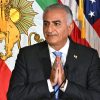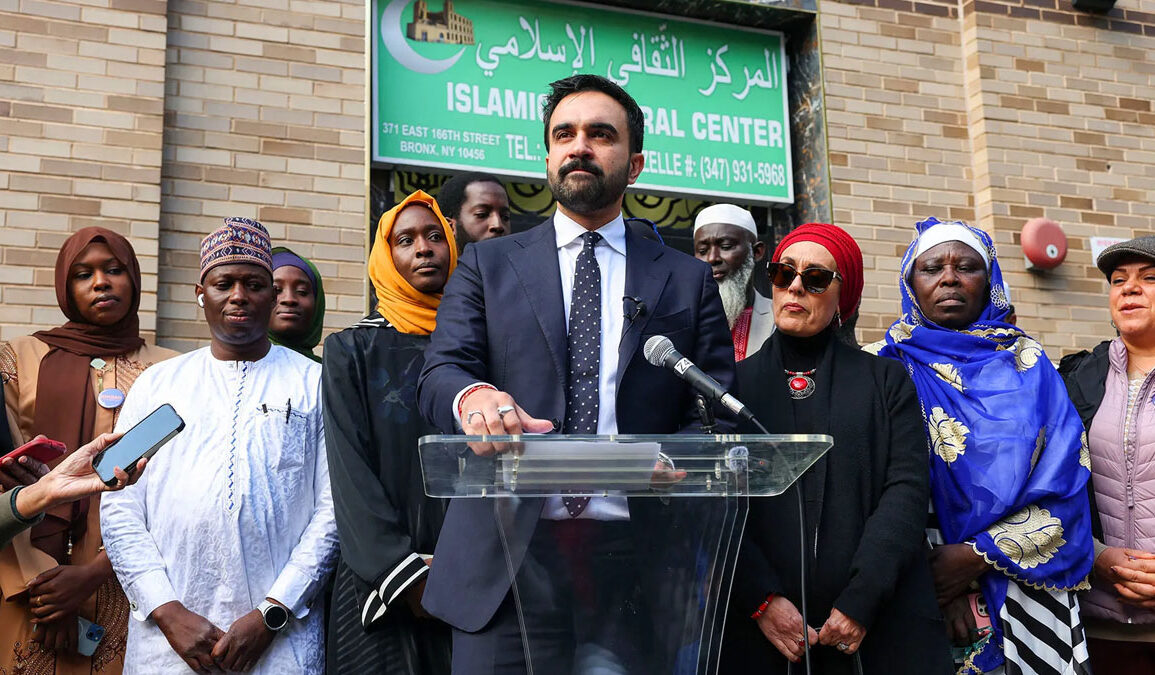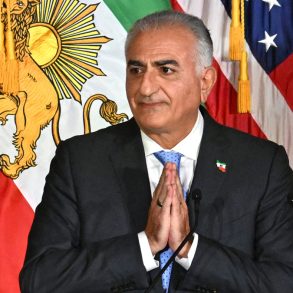As New York City approaches one of its most divisive mayoral elections in decades, new scrutiny has emerged over socialist candidate Zohran Mamdani’s ties to the Council on American-Islamic Relations (CAIR)—an organization long accused of connections to terrorist groups and extremist financing networks. An explosive report from the Institute for the Study of Global Antisemitism and Policy (ISGAP) has raised what its director calls “an alarm bell” about the ideological network supporting Mamdani and the potential danger it poses to New York’s Jewish community.
Who Is CAIR and Why It Draws Alarm
CAIR presents itself as a Muslim civil-rights group, but its history has been shadowed by terrorism-related allegations. In the 2008 Holy Land Foundation trial – the largest terror-financing case in U.S. history – CAIR was named by federal prosecutors as an unindicted co-conspirator and identified in government exhibits as part of a Muslim Brotherhood-linked network that supported Hamas, a U.S.-designated terrorist organization. The FBI subsequently suspended formal contact with CAIR.
Critics point to additional troubling facts: several former CAIR staffers and fundraisers have been convicted or pleaded guilty to terrorism-related crimes, and in 2014 the United Arab Emirates officially listed CAIR as a terrorist organization. The organization’s national executive director, Nihad Awad, provoked outrage in late 2023 when he said he was “happy to see” Palestinians “breaking the siege” after the October 7 Hamas attacks—remarks that prompted the Biden administration to publicly distance itself from CAIR.
CAIR denies all such allegations, claiming they are politically motivated and rooted in anti-Muslim bias. Yet, its continuing praise for violent movements in the Middle East, and its refusal to condemn groups like Hamas outright, have led many analysts to conclude that its rhetoric and actions functionally support extremist violence.
The Money Trail: $100,000 to Support Mamdani
According to the ISGAP Action report, CAIR went far beyond words in its support for Zohran Mamdani. Through its Unity and Justice Super PAC, the organization donated $100,000 to the largest political action committee backing him—New Yorkers for Lower Costs. Records show that CAIR contributed $25,000 on May 30 2025 and another $75,000 on June 16 2025. Analysts note that this is one of CAIR’s largest-ever political gifts to a single candidate.
The timing and scale of the donation have drawn sharp criticism because Mamdani has refused to condemn slogans such as “Globalize the Intifada,” a phrase many interpret as a call for violence against Jews. He has also been photographed with Imam Siraj Wahhaj, who once testified on behalf of the mastermind of the 1993 World Trade Center bombing. Mamdani’s critics argue that accepting money from a group identified in federal court as a Hamas-linked organization further confirms his tolerance for extremism.
The Ideological Connection
CAIR’s endorsement fits squarely within Mamdani’s long record of radical activism. As a student, he founded a chapter of Students for Justice in Palestine, a group known for anti-Israel demonstrations. As a politician, he has described Israel’s self-defense actions as “genocide,” introduced a bill to punish New York charities that support Israel, and declined to repudiate anti-Zionist slogans associated with terrorism.
ISGAP’s director, Charles Asher Small, told Fox News Digital that Mamdani’s rhetoric represents “the mainstreaming of antisemitism and anti-democratic ideology.” He warned that the combination of radical left politics and Islamist activism has created a “red-green alliance” that threatens the civic stability of New York. “Words and ideas lead to action,” Small said. “The antisemitic discourse of Mamdani will inevitably lead to increased hate and violence.”
Hundreds of New York rabbis have signed an open letter opposing Mamdani’s candidacy, arguing that his campaign “whitewashes and legitimizes antisemitism.” A Daily Mail poll found that nearly 800,000 New Yorkers—about nine percent of the city’s population—say they would leave if Mamdani wins, a reflection of deep fear over his policies and alliances. Many of the city’s wealthier residents, who pay roughly half of its income taxes, are reportedly already selling property in anticipation of his proposed rent freeze and far-left economic agenda.
Despite the growing backlash, Mamdani continues to lead in most polls. Analysts attribute his popularity to frustration with inequality and social dislocation—conditions that have historically fueled populist movements. “In stressful times, extremism becomes more appealing,” Small explained. “Mamdani offers fantastical promises that cannot be delivered, but they resonate with the disenfranchised.”
Why the CAIR Connection Matters
The revelation of CAIR’s $100,000 contribution strikes at the core of public trust. To many New Yorkers, this is not simply about campaign finance—it is about whether a leading mayoral candidate has been willingly funded by an organization tied to groups that justify violence against civilians. ISGAP’s report concludes that a Mamdani victory “could shatter the city’s fragile communal trust and roll back decades of progress in protecting Jewish life.”
Viewed in that light, the CAIR donation is more than a political controversy. It represents a moral test for the city: whether voters will overlook an alliance with a group that federal documents once linked to Hamas, or whether they will reject the normalization of extremism disguised as progressive politics.
As New York heads into Election Day, the choice stands starkly before its citizens: to confront the infiltration of radical ideology into its institutions—or to ignore it, and risk legitimizing those who have long excused or financed terror abroad.








